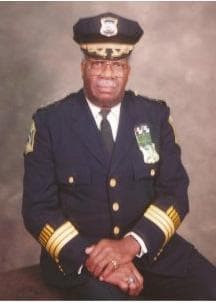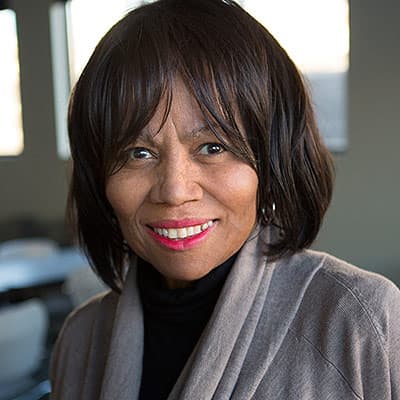Advertisement
Former Boston Police Commander And Tuskegee Airman Remembered
ResumeTributes continue to pour in for a retired Boston Police commander who served the city in some of its most transformative years: Willis Saunders. The tributes paint a picture not only of an evolving Boston, but of an evolving America.

Saunders made history even before he became a police officer. After graduating from Boston Trade High school in 1944, Saunders — who grew up in Roxbury — enlisted in the military at the end of World War II. He joined the Tuskegee Airmen, the all-black Air Force unit, and ultimately earned a Congressional Gold Medal.
Another young man from Boston who joined that unit was Harvey Sanford.
"At Tuskegee, the segregation was so bad I volunteered to go anywhere to get out of there," Sanford said. "It was bad here in the States, in the South. The local sheriff could come on the base anytime he wanted to get somebody and put them to work on a farm. What kind of living is that?"
Sanford became friendly with Saunders in the New England chapter of the Tuskegee Airmen. So did Delbrook Binns, who served in the Philippines and said the segregation they experienced at home was far-reaching.
"They had a white bar on one side of the street in town, a black bar on the other side. They kept it up overseas," Binns said.
Binns was among those who eulogized Saunders Monday at funeral services at the Charles Street AME Church.
The sanctuary was filled with police officers, activists, many from the old families of Roxbury, people whose lives had been touched by Saunders.
After his stint with the airmen, Saunders attended Howard University in Washington, D.C. and then came home to Boston and joined the Police Department in 1956. It was a time when there were few blacks on the force.
"Probably more than anybody in my experience, he brought the city together. He wasn't just an enforcer, he was a healer."
Former Mayor Raymond Flynn
Saunders rose through the ranks to become night commander under former Boston Police Commissioner Francis Mickey Roache.
"I knew he was well educated, I knew he was beloved, and I thought he would be the most healing person in the department, just by being himself," Roache said.
That was during the administration of former Mayor Raymond Flynn.
"Well, in the troubled times following the busing, Willis was the night man out in the streets of Boston," Flynn said. "Probably more than anybody in my experience, he brought the city together. He wasn't just an enforcer, he was a healer. And the city won't see the like of Willis Saunders again, I'm afraid."
Flynn recalls Saunders was particularly troubled during the Charles Stuart crisis in 1989. Police, responding to increased gun violence, had instituted a stop-and-frisk policy against young black men in the city's minority neighborhoods.
At the time, Louis Elisa was president of the Boston branch of the NAACP and had mounted a legal challenge against the stop-and-frisk policy.
"It was tough for anybody who was trying to maintain order and also trying to be fair," Elisa said. "Saunders was in a leadership position and trying to be focused. He still had to take orders from his superiors."
But Saunders saw his role as more than being a cop, said Alfreda Harris, the Boston School Committee member who used to run the Shelburne Community Center, which was a safe haven for young people in Roxbury.
"Yes it was, and it still is today, very much so, because of people like Willis, who directed young people there, who brought young people there he felt needed attention and needed a hug," Harris said.
Then there are those who followed in Saunders' footsteps.
"Well I was a young officer in District 4 in the South End. And Willis was pretty much a legend," said
James Claiborne, who rose to become a superintendent of the Boston Police force.
"Willis has a lot more patience and understanding than I did. I was sort of a young bull in a China shop and he really kind of tempered my demeanor and it benefited me."
Also benefiting from Saunders' mentorship were the women who started joining the force in the 1970s.
"He was strong, charismatic, eloquent and just terrific and almost like a father figure, always taking care of us," said Patrice Bennett, one of the women who now make up 13 percent of the Boston Police force. She came on the job in 1985, the year Saunders became the department's night commander.
"It was scary as a rookie, going to gun calls, but just seeing him there and knowing he was there showing us how to make the calls made us feel more comfortable," she said.
Saunders retired from the force in 1992. He was 84 years old when he died last week of heart failure.
This program aired on February 7, 2012.
